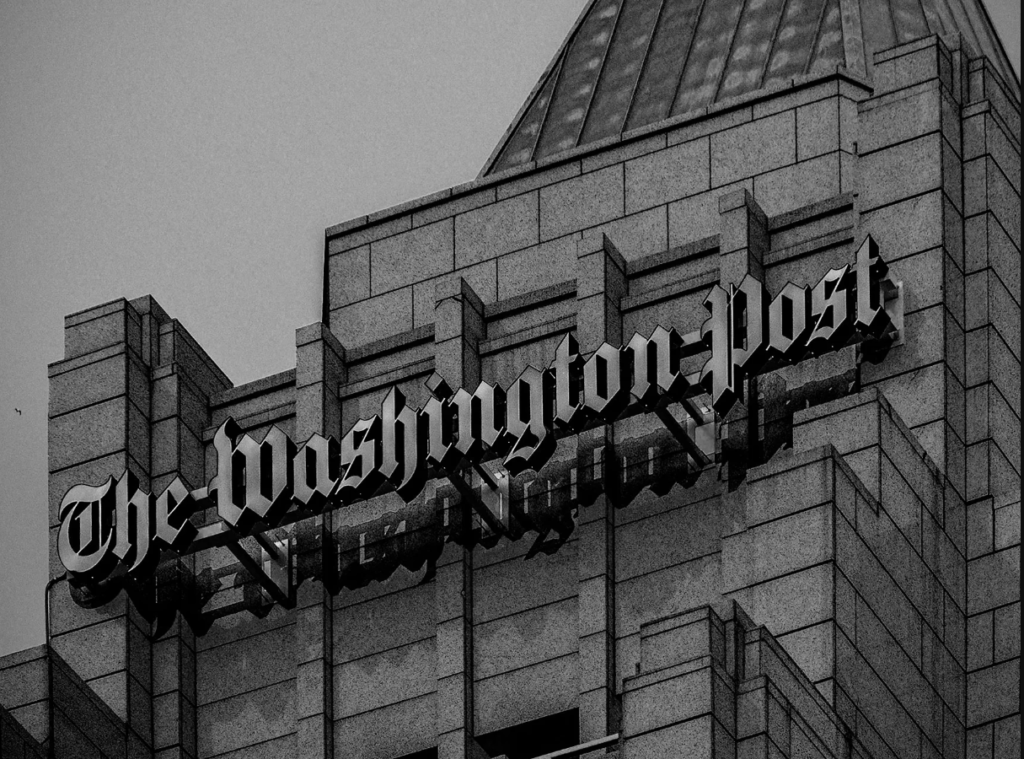The Washington Post, often referred to by its nickname “WaPo,” stands as one of the most influential newspapers in the world. Founded in 1877, The Washington Post has evolved over the decades, navigating through significant historical events, political shifts, and technological advancements to become a leading voice in American journalism. Known for its commitment to investigative reporting, in-depth political coverage, and fearless pursuit of truth, WaPo has left an indelible mark on journalism and society at large. Today, under the ownership of Amazon founder Jeff Bezos, the paper continues to adapt to the digital age while maintaining its journalistic integrity.
In this article, we will explore the history, influence, and ongoing role of WaPo in shaping the media landscape. From its groundbreaking investigations to its adaptation to digital journalism, WaPo remains a pillar of the press, embodying the values of a free and independent media.
The Washington Post Profile
| Attribute | Details |
|---|---|
| Full Name | The Washington Post |
| Nickname | WaPo |
| Founded | December 6, 1877 |
| Founders | Stilson Hutchins |
| Headquarters | Washington, D.C., USA |
| Ownership | Jeff Bezos (since 2013) |
| Key Focus Areas | Investigative journalism, politics, world news |
| Notable Coverage | Watergate Scandal, Pentagon Papers, COVID-19 |
| Subscription Model | Digital and Print |
| Current Editor | Sally Buzbee |
The Origins of WaPo: Humble Beginnings and Early Growth
The Washington Post was founded in 1877 by Stilson Hutchins, a New Englander and former Democratic state representative. Originally, the newspaper was established to give voice to the Democratic Party’s perspective in Washington, D.C. However, as it grew, the Post became known not just as a partisan outlet but as a respected source of news and opinion across the political spectrum. In its early years, WaPo focused primarily on covering local news in Washington, D.C., but it gradually expanded its scope to include national and international stories, establishing itself as a significant voice in American journalism.

By the early 20th century, the Post was known for its ambitious coverage and had gained a reputation as one of the leading newspapers in the country. This set the stage for the paper’s critical role in covering political issues, particularly in Washington, D.C., where it would become an essential source of information on government affairs.
WaPo’s Breakthrough: The Watergate Scandal and Investigative Journalism
One of the defining moments in WaPo’s history came in the early 1970s with the Watergate scandal. Under the leadership of executive editor Ben Bradlee, The Washington Post uncovered one of the most significant political scandals in American history, which ultimately led to the resignation of President Richard Nixon. Reporters Bob Woodward and Carl Bernstein were instrumental in exposing the cover-up surrounding the break-in at the Democratic National Committee headquarters, which was part of a larger abuse of power within the Nixon administration.
The Watergate investigation put WaPo on the map as a powerhouse of investigative journalism. The reporting won the paper the Pulitzer Prize and solidified its reputation as a fearless, independent voice willing to hold those in power accountable. The impact of Watergate was not only significant for WaPo but also transformative for journalism as a whole. It marked a shift in public expectations, where investigative reporting became an essential function of the press. The term “Watergate” itself became synonymous with investigative journalism, and The Washington Post’s legacy as a paper willing to expose the truth, regardless of the consequences, was firmly established.
Ownership Change: From Family-Owned to Jeff Bezos
For most of the 20th century, WaPo was owned by the Graham family. Publisher Katharine Graham, who took over after her husband’s death, became one of the most powerful figures in journalism. Her leadership during the Watergate scandal showed her commitment to journalistic integrity, even in the face of immense political pressure. Under her guidance, the paper grew both in prestige and reach, eventually becoming a staple of American journalism.

In 2013, The Washington Post underwent a significant change when it was sold to Amazon founder Jeff Bezos for $250 million. Bezos’s acquisition of WaPo marked the beginning of a new era. Many were skeptical about what his ownership would mean for the paper, especially given his background in technology and e-commerce rather than journalism. However, Bezos brought with him a deep understanding of the digital landscape and the financial resources needed to support WaPo’s digital transformation.
With Bezos at the helm, The Washington Post has focused on becoming a global digital media company, investing in technology, data analytics, and a subscription-based revenue model. This shift helped WaPo grow its digital audience and stay competitive with other major news outlets, especially during a time when print media was in rapid decline.
The Digital Transformation of WaPo
The digital revolution posed a significant challenge for traditional newspapers, but under Bezos’s ownership, The Washington Post embraced it. Bezos encouraged WaPo to focus on innovation, data-driven journalism, and reader engagement. The publication invested in advanced data analytics to better understand audience behavior, which allowed them to refine their content strategy.
One of the critical moves WaPo made was expanding its digital subscription model. While the newspaper still maintains its print edition, the digital platform has become the primary focus. WaPo’s website and mobile app are both highly optimized for user experience, and the paper has also explored new storytelling formats, including interactive graphics, videos, and even VR-based reporting.
This digital pivot helped WaPo significantly increase its online readership and subscription base, particularly as other print newspapers struggled to survive in the digital age. WaPo now boasts millions of digital subscribers, and its global reach has expanded, allowing it to compete with international media giants like The New York Times and The Guardian.
Key Areas of Coverage: Investigative Journalism, Politics, and More
The Washington Post has built its brand on strong, reliable reporting in several core areas. While the paper covers a wide range of topics, certain areas of coverage have become especially associated with WaPo:
- Investigative Journalism: WaPo’s commitment to in-depth investigative reporting is one of its defining qualities. From the Watergate scandal to contemporary issues like government surveillance and corporate malfeasance, WaPo consistently pursues stories that hold powerful entities accountable.
- Political Reporting: As a newspaper headquartered in Washington, D.C., WaPo has a natural advantage in covering U.S. politics. It provides extensive, nuanced reporting on Congress, the White House, and various government agencies. WaPo’s political journalism often sets the agenda for national conversation, with in-depth analysis and timely breaking news.
- World News: WaPo has correspondents stationed worldwide, covering international stories that impact the U.S. and global audiences. Their global perspective has allowed them to report on major events, from international conflicts to significant diplomatic developments, offering readers insights from all corners of the world.
- Local News: While WaPo is known for its national and international coverage, it hasn’t neglected local news. The paper continues to cover stories relevant to residents of the Washington, D.C., area, fulfilling its responsibility as a community news source as well as a global publication.
WaPo’s Role in Modern Journalism
In recent years, The Washington Post has played an essential role in covering major global events, from the COVID-19 pandemic to the Black Lives Matter movement and the contentious 2020 U.S. presidential election. WaPo’s coverage during these events highlighted the importance of reliable journalism in times of crisis, providing factual information, data analysis, and investigative reports that shaped public understanding.
The Post’s slogan, “Democracy Dies in Darkness,” introduced after Bezos’s acquisition, reflects the paper’s commitment to transparency and accountability. This slogan resonates in a world where misinformation spreads quickly, and trust in media is often questioned. By emphasizing truth and transparency, WaPo continues to position itself as a guardian of democracy, committed to providing citizens with the information they need to make informed decisions.

Criticisms and Challenges
While WaPo enjoys a strong reputation, it is not without criticism. Some detractors argue that the paper leans toward a particular political ideology, potentially influencing its coverage. Additionally, WaPo’s ownership by Bezos has raised questions about its objectivity, particularly when reporting on issues related to big tech and business.
There are also challenges facing WaPo in the broader context of journalism today. Like other media outlets, WaPo grapples with the pressures of the 24-hour news cycle, which can sometimes lead to rushed reporting and sensationalized headlines. Moreover, the rise of social media has changed how people consume news, creating competition for attention and sometimes diluting the value of in-depth reporting.
WaPo’s Impact on Journalism and Society
The Washington Post’s influence on journalism and society is undeniable. Its role in breaking major stories, such as the Watergate scandal, has cemented its place in history. WaPo’s commitment to investigative reporting has inspired generations of journalists and established a standard for transparency and accountability. By focusing on digital transformation, WaPo has adapted to changing times, ensuring that quality journalism remains accessible in an era dominated by technology.

Through its continued dedication to delivering news that matters, WaPo reminds us of the critical role journalism plays in a functioning democracy. It serves as a watchdog, a source of information, and a platform for public discourse.
Conclusion: The Future of WaPo and Its Legacy
As WaPo continues to innovate and grow, its legacy as a trusted source of news and a champion of investigative journalism remains strong. The newspaper’s ability to adapt to digital challenges while maintaining its core values sets it apart in the ever-evolving media landscape. With its commitment to truth, transparency, and accountability, WaPo will likely remain a major player in journalism for years to come.
Whether you’re a daily reader, a subscriber, or just someone who appreciates quality reporting, understanding WaPo’s history and impact offers valuable insight into the role of journalism in shaping our world. In a media environment where the demand for trustworthy information is greater than ever, WaPo’s influence is not only enduring but essential.
